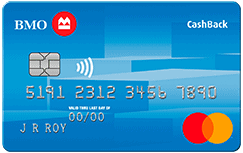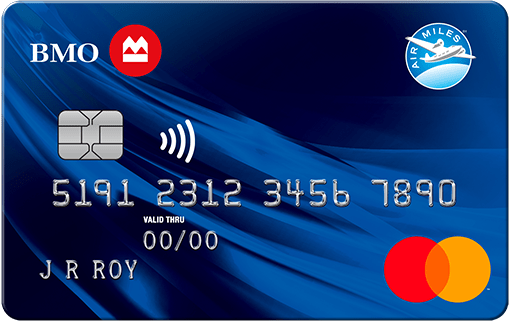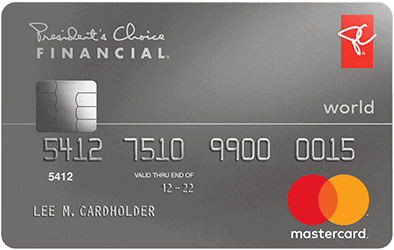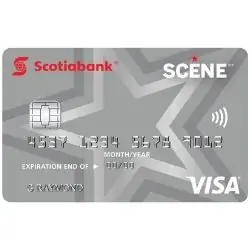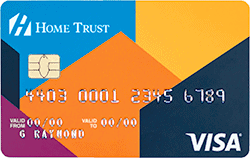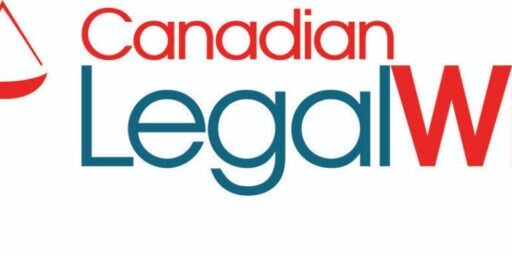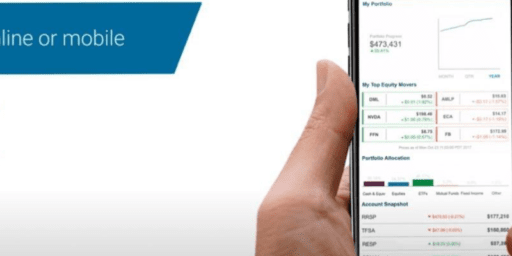Best Canadian Student Credit Cards For 2025
I’m going to be brutally honest: when I was a student, I didn’t read a single article about the best student credit cards in Canada. My mom took me to the bank and basically told me where to sign.
My only thought was , “Oh hey, free money!” …and put that $500 limit to the test.
Please Do NOT do not follow my terrible example.
If you’re a student and are reading this article, you’re already ahead of 18-year-old me. I applaud you. Adulting can be hard and credit cards can be confusing when you’re not used to them (or even when you are, honestly).
That’s where we come in.
This article will compare the best student credit cards in Canada, plus go through some basic information and tips to get you started on the right track, so you don’t end up like teenage me (I turned out fine, but there were some bumps along the way that no one needs to experience firsthand).
Let’s go!
Top 5 Student Credit Cards Compared
$0
19.99% / 22.99% (21.99% for Quebec residents)
0$
19.99% / 22.99% (21.99% for Quebec residents)
$0
20.97% / 22.97% (21.97% for Quebec residents)
$29
19.99% / 22.99%
$0
19.99%
No Available Promotion
Why Should You Get a Student Credit Card?
We grow up with mixed messages around credit cards.
We hear about how bad credit card debt is… and yet having a credit card also seems like a requirement for adulthood. It’s truly bizarre.
The thing is, credit cards are useful. They help you buy things, sure (obviously), but they also help you establish a credit history—and down the road that’s a must for buying a house or a car, or for getting a loan to start the business of your dreams.
There will never be a time in your life when it’s so easy to get a credit card. Student cards are designed as starter cards, so banks don’t expect you to have much of a credit history at all. The same can’t be said for regular credit cards. Banks also don’t expect you to have much of an income—as long as you can show that you have some, from some source, you’re usually good (we’ll get into that in the next section).
(related read: Best Student Bank Accounts in Canada)
How Do You Get a Student Credit Card?
To apply for a student credit card, you’ll need a couple things:
- Proof of age—you can’t have your own credit card unless you’re the age of majority in your province, which is 19 in BC, New Brunswick, Newfoundland, Northwest Territories, Nova Scotia, Nunavut, and Yukon, and 18 in Alberta, Manitoba, Ontario, PEI, Quebec, and Saskatchewan.
- Proof of income—it can be from a job, an allowance, a scholarship or grant, or a student loan. The banks just (understandably) want to know that you can pay your bills.
And that’s often it. It always pays to check the website for the card you’re planning to get, just to be sure they don’t need anything else, but that’s the standard. If you’re under the age of majority and want your own credit card, you’re out of luck…mostly. If you’re 14+, you can’t have your own credit card, but you can be issued an additional card on an adult’s account. That means that the charges go on their account and any rewards you earn go to them as well.
So, if you’re in high school and need a credit card, you’re going to want to talk to a parent and see if this is a possibility. When you turn 18 (or 19), you can apply for your own card, but before that, this is your best option.
Credit Card Tips For Canadian Students
Credit cards are tools, and like any tool, they’ll only work properly for you if you follow the directions. Here are some rules to follow to help you navigate credit card ownership like a pro (and better than some adults out there).
Before you apply, read the fine print.
It pays to do a bit of research before you jump in. Welcome bonuses are fantastic…but sometimes they come with strings attached like a minimum amount you need to spend before you get the reward. It pays to check on that before you apply so you’re not disappointed in the end, and so you get the card that will work best for you over the long run.
Pay attention to due dates.
Make sure you know when your monthly bill is due and really make sure you don’t miss a payment. Credit cards are only good for building credit if you’re responsible with them. If you miss a payment, your credit score will go down, and that’s A. a bad thing and B. time consuming to fix.
Pay your balance in full if you possibly can.
Don’t be like me—your credit card isn’t “free money.” It’s borrowed money that you have to pay interest on. The best approach to responsible credit card use is to only use it for expenses you can pay off in full every month. Otherwise, you’re carrying a balance, and with interest rates at about 20% annually, that’ll cost you.
At least pay the minimum payment.
We get it, it’s not ideal but sometimes a carried balance happens. When you get your monthly bill, you’ll see a minimum payment listed on it—you must pay at least that much, and we recommend paying as much as you can in addition to it.
The problem with making minimum payments only is that they often don’t even cover the interest charges…and that means your debt is accumulating more debt the longer it sits there (and this is where that whole “credit cards bad” message comes from).
Watch your credit limit.
Student cards often have a lower credit limit like $500 or $1,000. This lets you get used to managing your credit while keeping your total card debt low. It’s important to keep an eye on your credit limit and make sure you don’t spend more than that.
In fact, not only should you avoid spending more than your limit, but you should also keep the total debt well under that limit. It negatively affects your credit score if your card is maxed, so keep that in mind and watch what you’re spending.
Things to Think About Before You Pick a Card
The best credit card for you will be partly determined by your personal tastes and needs, so it’s important to do some research (like reading this article) before you jump in.
- What kind of things do you spend your money on? Some cards have higher rewards for certain categories of spending (like groceries or travel), or for shopping at certain stores, so it pays to know your habits beforehand. You don’t want a card that rewards you for shopping at Sobeys if you get most of your groceries at Loblaws.
- What kinds of rewards do you want? Do you want cash back? Free movie tickets? Discounts on groceries? Something flexible?
- Are perks important to you? Some cards give you more than others.
You get the idea. It pays to think about what you’re looking for. We’ve laid out our favourite cards in 5 categories, but in the end, your needs and preferences are the most important factor.
These cards all have $0 annual fees, approximately equal interest rates, and are either designed for students or are known to be student-friendly, so any one of these is a great starting point.
Best Cashback Credit Card for Students: BMO Cashback Mastercard for Students
We love a card that pays us to use it! The BMO Cashback Mastercard for Students will give you 0.5-3% cash back on all of your purchases (we enjoy the bonus earnings on groceries). You can redeem your cash back at any time for a fee as low as $1 or set up an automatic deposit when your earnings reach any amount over $25. You can also redeem your cashback as a statement credit, which cuts down your monthly payment.
BMO designed this card specifically for students, so you can expect an easier application process, as long as you have income from somewhere (or someone).
Here are the details:
Annual Fee: $0
Interest Rate: 19.99% purchases, 22.99% cash advances (21.99% for Quebec residents)
Welcome Bonus: Get 5% cash back on purchases made in the first 3 months, with the following spend limits, for a maximum total value of $125 cash back:
- $500 in qualified grocery purchases
- $500 in qualified recurring payments
- $1,500 on all other purchases
- Refunds, cash advances, and interested charges don’t count
Earn rate:
- 3% cash back on grocery store purchases
- 1% cash back on recurring bill payments (streaming services, subscriptions, monthly utilities)
- 0.5% cash back on everything else.
Perks:
- Extended warranty (up to an additional year of warranty on items purchased with your card)
- Purchase Protection (90 days theft, loss, damage coverage for purchases made on your card)
- Up to 25% off rentals at participating National Car Rental and Alamo Rent a Car locations
- Discounts on Cirque du Soleil tickets
BMO’s welcome bonus of 5% cashback is fantastic, but this is a great example of a situation where reading the fine print is important. BMO caps the amount you can spend in each category with the 5% cash back, to a maximum total earning of $125. The spend limit isn’t a dealbreaker here, though—it’s still a generous welcome bonus, and you wouldn’t want to max out your card, not even on a quest for maximum cashback!
(related read: Best Free Cashback Credit Cards in Canada)
Best Student Credit Card for Air Miles: BMO Air Miles Mastercard for Students
If you already collect Air Miles (or if you want to start), the BMO Air Miles Mastercard for Students is our pick for the best student credit card for Air Miles collectors. While an Air Miles loyalty card allows cardholders to earn Miles at partner stores, an Air Miles Mastercard allows you to earn Miles with every purchase, anywhere, as well as bonus miles at partner stores.
Air Miles partner stores include:
- Sobeys
- Staples
- Lawtons Drugs
- Foodland
- Safeway
So, if you shop frequently at any of these stores, this card could really be worth your while.
Air Miles members can double their points by showing their program number when they shop with their BMO Air Miles Mastercard at Air Miles partner locations. And, as always, Air Miles lets cardholders choose between redeeming their Miles for in-store discounts, merchandise, and travel rewards. The flexibility here is second to none!
Annual Fee: $0
Interest Rate: 19.99% purchases, 22.99% cash advances (21.99% for Quebec residents)
Welcome Bonus: 800 Air Miles Bonus Miles
Earn rate:
- 3 Miles per $25 spent at Air Miles partner locations
- 1 Mile per $25 spent everywhere else
- Earn Miles twice at partner stores by presenting your Air Miles card when you pay with your BMO Air Miles Mastercard.
Perks:
- Extended warranty (up to an additional year of warranty)
- Purchase Protection (90 days)
- Up to 25% off rentals at participating National Car Rental and Alamo Rent a Car locations
- Discounts on Cirque du Soleil tickets
- Add another cardholder for free
The BMO Air Miles Mastercard for Students has a welcome bonus offer of 800 Miles. How you redeem those Miles is up to you—but this amount will cover things like:
- $80 in in-store discounts
- Most of an air fryer (a Proctor Silex, 2.2 quart air fryer is available for 870 Miles)
- Half of the required Miles for a flight from Halifax to Boston (it’ll take 1500 Miles, so you’ll have that much fewer points left to collect)
With such a wide range of choices, plus perks like the extended warranty, purchase protection, and rental car discounts, the BMO Air Miles Mastercard for Students is a solid choice.
Best Student Credit Card for In-Store Rewards: PC Financial Mastercard
A discount on groceries is always helpful, especially now, when it feels like prices are constantly on the rise. If you shop regularly at Loblaws-owned stores, you probably have a PC Optimum Points rewards card already—and the PC Financial Mastercard can help you earn discounts even faster by earning Optimum points with every purchase.
You can redeem your PC Optimum points in 10,000-point increments by mentioning them at the checkout of any Loblaws-owned store.
These include:
- Atlantic Superstore
- Canadian Superstore
- Joe Fresh
- Loblaws
- No Frills
- Shoppers Drug Mart
PC Financial Mastercard purchases earn you 10 points per dollar spent anywhere, and purchases at some stores (see: Shoppers Drug Mart, and Esso and Mobil gas purchases) earn you extra points.
Annual Fee: $0
Interest Rate: 20.97% purchases, 22.97% cash advances (21.97% for Quebec residents)
Welcome Bonus: 20,000 PC Optimum points (a $20 value)
Earn rate:
- 25 points per dollar spent at Shoppers Drug Mart
- At least 30 points per litre at Esso and Mobil stations
- 20 points per dollar spent through PC Travel
- 10 points per dollar spent everywhere else
Perks:
- Purchase Assurance (90 days)
- Free Extended Warranty (up to an additional year)
- Add up to 4 additional cardholders for free
If you link your PC Optimum number to the PC Optimum app, you’ll receive bonus offers on the products you buy most often, so you can earn points faster without changing your shopping habits. The personalized deals stand out in a world where we often have to change our buying choices in order to get a deal.
There’s no limit to the number of PC Optimum points you can earn, and every 10,000 points is another $10 discount, which always comes in handy. We appreciate a discount on things we were going to have to buy anyway!
Best Student Credit Card for Entertainment Rewards: Scotiabank Scene Visa for Students
The Scotiabank SCENE Visa for Students is possibly the most fun entry on our best student credit card list. This popular credit card is part of Cineplex’s loyalty program, and every purchase earns SCENE points, which are redeemable for discounts on movies and dining out, as well as gift cards.
We enjoy the fact that you can earn and redeem SCENE points quickly. While many cards make you collect tens of thousands of points before you can redeem them for anything noteworthy, you can redeem 1,250 SCENE points for admission to a movie.
Or, if restaurants are more your thing, you can redeem just 1,000 points for $10 off a meal at a range of Cara restaurants, including:
- East Side Mario’s
- Harvey’s
- Montana’s BBQ & Bar
- Milestones
- Kelsey’s Original Roadhouse
If you prefer staying in, the Scotiabank SCENE Visa card for Students does allow you to redeem your points for gift cards. However, it’s really aimed at people who like going out, so if that’s you, it’ll help you do it for less.
Annual Fee: $0
Interest Rate: 19.99% purchases, 22.99% cash advances (21.99% for Quebec residents)
Welcome Bonus: 1,250 Bonus SCENE points with first purchase
Earn rate:
- 2 SCENE points for every dollar spent at Cineplex theatres or cineplex.com
- 1 SCENE point for every dollar spent on everyday purchases
Perks:
Up to 25% off base rental rates at participating AVIS and Budget locations in Canada and the US.
There’s something to be said for a card that helps you get out and have some fun, especially now that things are opening up again. The student version of Scotiabank’s SCENE Visa card comes with the same basic features as their regular card, which is great for you! And the welcome bonus is enough to cover admission to a celebratory movie or a discount on dinner out.
Best Secured Credit Card for Student: Home Trust Secured Visa
A secured credit card like the Home Trust Secured Visa could be a good choice for you if:
- You’re less concerned with rewards and more focused on building credit and developing good credit card habits
- You’re worried about credit card debt
- You’ve had a credit issue in the past,
When you open a secured credit card, you send in a security deposit (a $500 minimum), which functions as your credit limit. This makes it feel like a prepaid card, which you load and then spend, but the reality is different: Home Trust keeps your deposit and issues you a card, and when you close your account, you get the deposit back if your account is in good standing—kind of like the damage deposit on an apartment.
Using the card responsibly and paying your fees regularly will build your credit—something that prepaid cards don’t do. If you don’t take care of your account, the company will close it and keep the security deposit, so if you’re worried about whether you can handle the responsibility of a credit card, or if you do best with enforced structure, this could be the best card for you to start with.
Annual Fee: $0
Interest Rate: 19.99% purchases and cash advances
Welcome Bonus: None
Earn rate: n/a
Perks: 90-day purchase security
A secured credit card doesn’t come with as many perks as other cards, and rewards are almost unheard of, but it can still be a good option. Secured credit cards are designed for people with poor or no credit, and their main purpose is to help people improve (or build) their credit score. You can learn more about secured credit card options in our article about the Best Secured Credit Cards.
Canadian Student Credit Cards – FAQ
The Best Student Credit Card for You
Student credit cards are a great way to start building your credit history. And because they’re designed with students in mind, they’re relatively easy to get. Give your shopping and rewards preferences some thought before you pick a card, and remember to pay your bills on time and in full whenever possible. The tips in this article will help you develop good habits and handle your credit responsibly.
So, what’s the absolute #1 best credit card in Canada?
Our editorial team likes the BMO Air Miles Mastercard for Students and the Scotiabank SCENE Visa for Students… but all these cards are excellent. You need to pick the card that works best for you and reflects your tastes. Part of adulting is making an informed decision. The “informed” part is taken care of if you’ve read through this article, but the “decision” part is up to you! We’d stand behind any of the picks here – we just personally like earning Air Miles and SCENE points!

